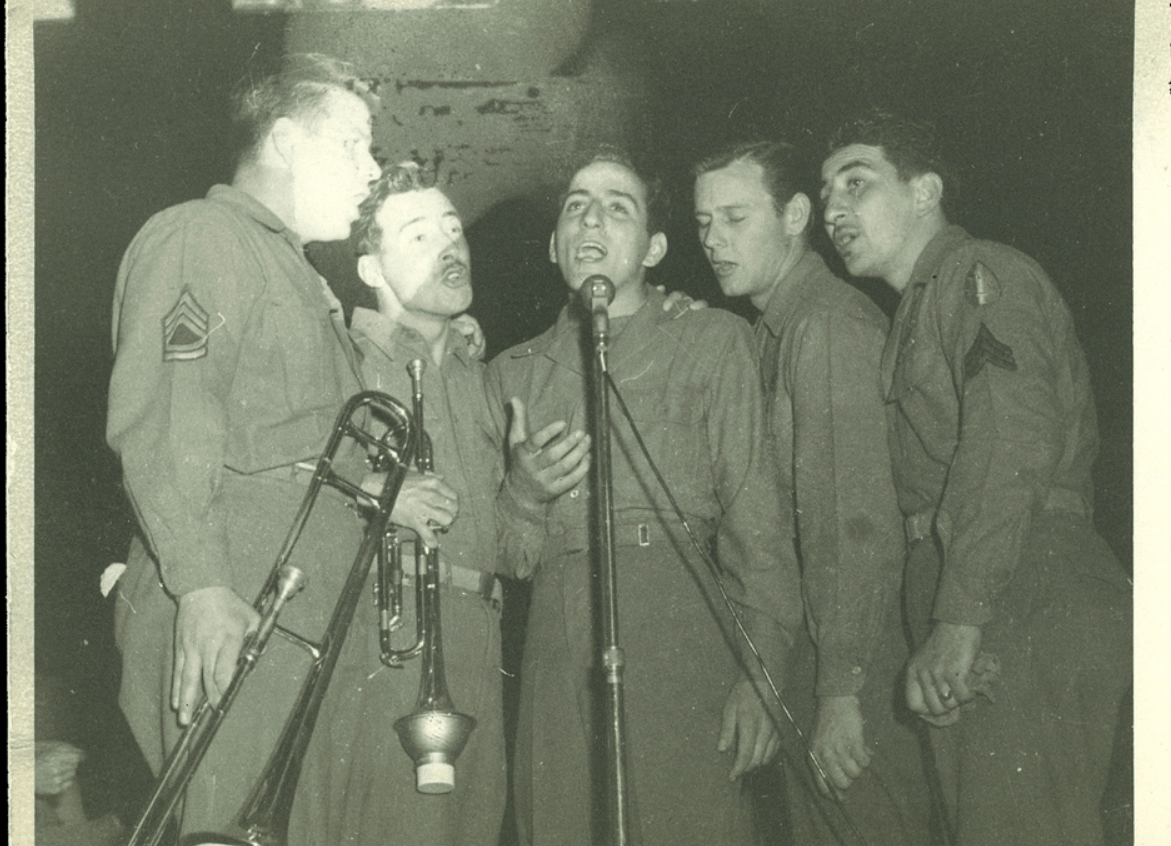

Award winning singer Tony Bennett died on Friday, July 21 at the age of 96. The vocalist, whose career spanned seven decades and who sang hits such as “I Left My Heart in San Francisco,” was also a veteran of World War II and got his start singing for his fellow troops.
Bennett’s publicist confirmed his death on Friday. Bennett, born Anthony Benedetto in 1926 in Queens, New York City, grew up in poverty, listening to jazz during the Great Depression. When he turned 18 in 1944 he was drafted into the U.S. Army.
Bennett arrived at the war zone in January 1945, assigned to the 255th Infantry Regiment of the 63rd Infantry Division as a replacement.The Army had taken heavy casualties during the Battle of the Bulge, which was wrapping up, and needed to fill gaps in the ranks. He wrote about his time in the service in his 1998 autobiography The Good Life, noting the “unrealistic assumption” that hardened veterans would be able to teach fresh replacements everything they needed to know.
He arrived on the front line in March, now in Germany. He and the rest of his company saw fierce fighting while assigned to flush out remaining German stragglers from towns along the way. His last “official mission” while part of the 255th was to liberate Kaufering. Kaufering was a concentration camp, part of the Dachau prison network, only a few dozen miles away from the main Dachau site. When the American forces approached, the prison guards forced thousands to march out of the camp, while killing hundreds who could not move. Bennett and his comrades arrived to find hundreds of corpses left. Bennett later called his time in the war “a nightmare that’s permanent.”
While in Europe he was able to see Bob Hope perform at a USO show, an experience that played a role in his move to show business. When his own singing skills were noticed, Bennett joined Special Services as a performer. He was demoted from corporal to private for socializing with a Black soldier he knew from New York — this was still a segregated military — but stayed in Europe as part of the occupation.
Subscribe to Task & Purpose Today. Get the latest military news and culture in your inbox daily.
And like many soldiers in the war, Bennett and his comrades found themselves sick of military food. Stationed at a house in Kunzelsau, the soldiers enjoyed the offerings of the adjacent farm. As he wrote: “We’d been living on C rations for so long we’d almost forgotten what real food tasted like.You can’t imagine how good fresh fruit and vegetables taste after months of army food.”
Bennett left the Army in 1946. Fully focused on singing, he eventually became a star in the 1950s. He had multiple hits over the decades, including “I Left My Heart in San Francisco,” which he popularized. Frank Sinatra once called him “the best singer in the business.” After a slump in the 1970s, his career rebounded in the 1980s, and he spent the next few decades working with several modern, alternative artists. He formed a partnership with Lady Gaga, releasing two albums with her.
His experiences during World War II left a lasting impression, with Bennett becoming a pacifist. He wrote in The Good Life that “[w]ar is far more horrifying than anything anyone could dream up.”
In 2021 Bennett announced that he was retiring after being diagnosed with Alzheimer’s Disease years earlier. In the course of his career he won 19 competitive Grammy Awards, a National Endowment for the Arts Jazz Masters Award and broke several Guinness World Records, including for being the “oldest person to reach No.1 on the US Album Chart with a newly recorded album” at the age of 88.
The latest on Task & Purpose
- What you need to know about Biden’s IRR executive order
- Vet whose service dog died after violent arrest sues police
- Did Ukraine just assassinate a Russian submarine captain with his own Strava?
- Space Force NCO faces murder charges in shooting of two teens breaking into his Hyundai
- How the Air Force ran short of money for personnel
